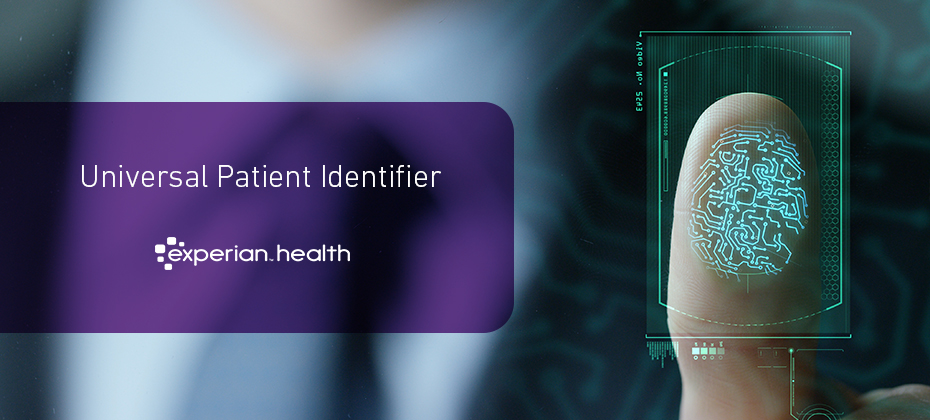
Editor’s note: This blog post was updated on October 2, 2023.
In today’s rapidly evolving healthcare landscape, the need for a standardized approach to patient matching and identification has become crucial. Not having a unique patient identifier (UPI) not only poses challenges to managing patient data but also hampers interoperability between healthcare organizations.
A unique patient identifier (UPI) is a method for standardizing patient identification. Individuals are assigned a unique code, and that code, rather than a Social Security Number, name, or address, is what is used by healthcare organizations to identify and manage patient information. A standardized code like this not only protects sensitive health information but supports the exchange of data between healthcare organizations and states as it is a number and format easily read and recognized by all.
Advocates for a coordinated approach to patient matching are continuing to make the case for a national unique patient identifier (UPI). In April 2023, healthcare organizations wrote to legislators urging them to reject language in the 2024 Health and Human Services appropriations bill that prohibits the use of federal funding for a national UPI standard.
More than 150 healthcare and medical organizations signed the letter, including Experian Health. The coalition argues that a standardized approach to patient matching could save lives, avoid medical errors, reduce unnecessary costs and greatly improve operational efficiency. While federal funding currently remains off-limits, the industry is poised to move forward to develop a national patient identity solution that is cost-effective, scalable, secure and one that protects patient privacy.
Let’s explore how a UPI can revolutionize the healthcare industry and create a truly connected ecosystem.
How a unique patient identifier is used in healthcare
UPIs give providers and payers a way to link records for the same patient or member, so they have one complete record. Without a UPI, a provider may inadvertently create a duplicate patient record because a slight variation in the patient’s name or address means their original record isn’t accurately matched to them. A 2022 survey by Patient ID Now found that 6 in 10 healthcare organizations had estimated duplication rates of 4-8%, while 16% of organizations had more than 15 patients with the same name.
If there’s more than one record for a patient, providers may miss important medical information that’s not carried through to the version of the record they’re looking at. Unreliable records can also lead to misidentification, where patients with a similar name may have their records incorrectly matched. According to the ECRI Institute, misidentification is one of the top ten threats to patient safety. Patients could be given the wrong treatment or medication, with life-altering or fatal consequences.
While patient safety is the top concern for providers, efficiency is another driver of attempts to improve records management. Organizations report spending $1.3 million per year on patient identity resolution, as resources must be redirected to figuring out who patients are and fixing errors. Being able to correctly link records for a complete view of an individual’s identity can help circumvent these challenges.
A unique patient identifier is the key to interoperability
Managing patient data across the entire healthcare ecosystem is a long-standing challenge. Many organizations rely on master patient indexes to match patients using demographic data. But these single-source databases are rife with gaps, overlaps, and outdated patient information. They can’t keep up with simple name and address changes or easily identify and fix data entry errors.
A more effective solution involves combining data sets to create complete identities and profiles, where every piece of new data is instantly updated and verified. Experian Health uses referential matching technology to achieve a fuller picture of each patient’s identity. The UPI then acts as a golden thread, linking each patient record correctly within and between systems.
For example, if a provider has a patient in their EHR twice under two spellings of the patient’s name, a UPI would link those two profiles, creating a singular view of the patient. If a pharmacy has a patient listed under a birth name but the doctor has them listed under their married name, a UPI can ensure both systems match the patient correctly.
When combined with other patient engagement solutions, data and identity management tools create the infrastructure needed for healthcare to truly become one cohesive, patient- and member-centric network.
It is important to note that the UPI is not a patient-facing number and is not known to the patient or provider. It does not collect or share any clinical claims or diagnostic information; its purpose is simply to link records together giving providers and payers a complete view of someone’s identity.
Improving the patient experience with a unique patient identifier
Healthcare consumers are increasingly seeking digital-first, efficient processes, and they’re sensitive to the need for robust data security. Healthcare organizations must demonstrate their ability to manage patient data properly from the patient’s first interaction. If data management is inefficient, patients will find themselves being forced to fill out forms they’ve already filled out multiple times or undergo duplicate tests as they travel between facilities. Patients with similar names may be confused if they’re shown someone else’s details during the identification process.
In an ecosystem built around a strong healthcare network, these discrepancies can be avoided. The patient’s unique identifier remains consistent across every healthcare facility they visit – including physicians’ offices, hospitals, pharmacies, specialists and long-term care facilities – so all providers know exactly who they are.
While patients welcome a more convenient, coordinated experience, they’ll also be reassured by the reduced risk of medical errors that comes with a well-connected healthcare network.
Efforts to improve patient identity resolution in healthcare
While there may not be a national UPI yet, the industry is trying to find workaround solutions. The Centers for Medicare & Medicaid replaced Social Security Numbers with Medicare Beneficiary Numbers as the primary means of identifying Medicare beneficiaries. But while this addresses the risk of data breaches, it doesn’t resolve the interoperability challenge.
Another initiative is Project US@ (Project USA), run by the Office of the National Coordinator for Health Information Technology (ONC). This aims to create a consistent healthcare industry-wide specification for representing patient addresses, to improve address accuracy. This would ensure that, for example, the same street name written as “road” and “Rd.” is not mistakenly viewed as two different addresses by the software.
To support efforts to integrate disparate software solutions, Experian Health announced in 2019 that every person in the United States had successfully been assigned a unique UPI, powered by Experian Health Universal Identity Manager (UIM) and NCPDP Standards™ (the “UPI”).
Combining Experian’s expansive data assets and innovative UIM technology along with NCPDP standards, each person who has received medical care or used a pharmacy has been assigned a UPI. As new patients enter the healthcare ecosystem, this number will continue to grow.
Dave Roberts, VP of Platform Products at Experian Health, says that “the technological foundation is already in place for data interoperability through the creation of UPIs that are maintained in a master person index. These solutions are vendor-neutral, meaning data can flow freely between disparate electronic health systems, regardless of size or location.”
Utilizing Experian Health’s Patient Identity Solutions
The implementation of unique patient identifiers holds immense potential for creating a connected healthcare ecosystem. By standardizing patient identification and enhancing data management, a unique patient identifier can improve patient safety, reduce costs, and streamline processes across the entire healthcare industry.
Find out more about how Experian Health’s patient identity solutions serve as stepping stones towards a more efficient and patient-centric healthcare network.


